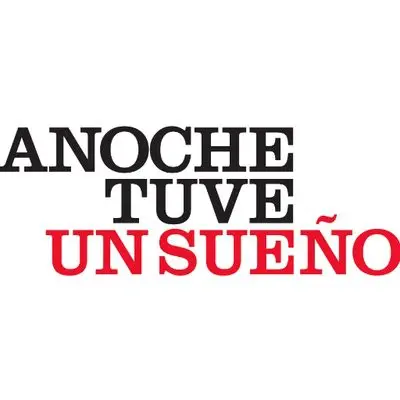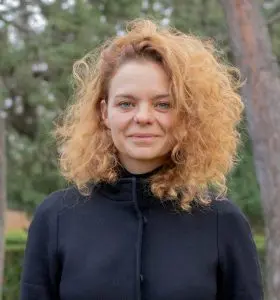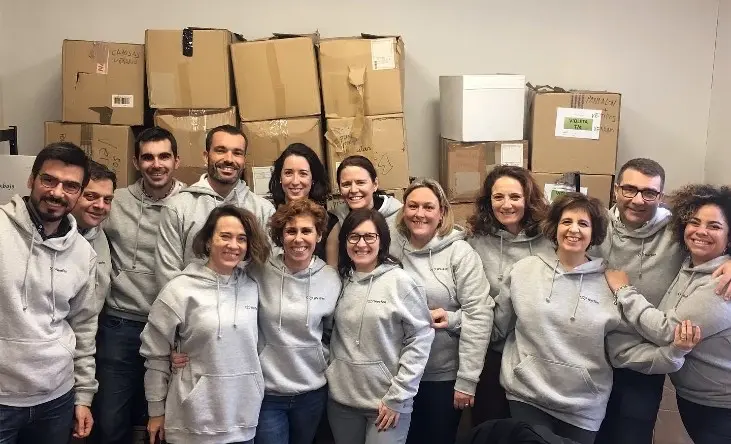SUSTAINABILITY | 30.03.2021
“I want to work” has become “I have a job” for 8 out of every 10 women in vulnerable situations

Anoche tuve un sueño
Vanessa López launched the “Quiero Trabajo” (I Want Work) foundation in 2015, a project that aims to empower the most vulnerable women, helping them acquire skills, adopt positive attitudes and providing them with the tools needed for successful job interviews The aim is to facilitate the reinsertion of people—primarily women at risk of social exclusion—into the job market and society, while also restoring their self-confidence.

Who is Vanessa López?
That’s a complicated question—and not because I’m a complicated person—but anything to do with who we are isn’t easy to define. Vanessa is a daughter, a sister and a mother who has always wanted to make a positive difference to the world and go that extra mile. Vanessa likes to think that everything she does has the potential to help others. That is her driving force. It’s what motivates her, motivates me, to continue growing and to keep going. First of all, one of my values, which, having been lucky enough to grow up in a very matriarchal family, was instilled in me from a young age, is to be a good person.
That’s so important!
Whatever you do you must do with a clear conscience and with the intention of being a good person. I think that has been one of the most valuable and fulfilling lessons I’ve learned. I try to let it guide everything I do. Obviously, you can shirk it or make mistakes and unintentionally hurt people without meaning to, without thinking about it. But in my heart, at my core, that is what I am.
So, have you managed to be a good person?
Yes, I have. If you asked my husband there would be times that he’d disagree (laughs). But overall, yes. I often think about how I’ll feel on my deathbed, when your life flashes before your eyes, before the time comes. When you do that you can change things and modify what doesn’t line up with who you are. I’ve made many mistakes and I’ll make many more, because I’m human and I’m not perfect.
“When a woman has suffered gender-based violence for 20 years, it’s very likely she will say she doesn’t have any strengths.”
One of the ways you’ve been a good person is through your foundation, “Quiero Trabajo”: When did it come about and why did you decide to create it?
The foundation was born in 2015 out of a private initiative of two patrons of the foundation who had something “similar” in England and the United States. It is not the same as those projects, due to the current situation in Spain, which meant we had to change things. I joined from the very start to help set the wheels in motion and I’m the one who, very gradually, has been turning “Quiero Trabajo” into what it is today. We listen, above all, to the needs of the women who come to the foundation and the different needs and “baggage” that each of them brings with them, which is considerable.
It’s a model, then, that also exists in the United States and England
In the United States, the first one, “Dress for success,” was created 25 years ago. Then it was implemented in England and various other countries. For our part, one of the patrons of the foundation saw this model and decided to bring it to Spain It’s the same in terms of the individual service but the accompanying services that we have incorporated into the foundation have emerged based on the needs of the women that we met here and the needs of Spanish society. Ultimately, they are very different realities.
What differences are there?
The British organizations help women with their attire and help them to prepare for interviews but they don’t explore self-awareness, self-esteem or how we see ourselves. We work on everything that is going on in their heads that might be holding them back, to get them back into the labor market and reintegrated into society. Because, ultimately, that is the problem.
“I dream of the day when social entities will no longer be necessary because we will have become obsolete.”
You define your foundation as “a self-esteem and confidence generator”
That’s how the women define it. This is another major difference between our foundation and other existing projects in the United States or England. We work with public and private institutions who refer these women in vulnerable situations to us: either because they have suffered gender-based violence, because they are single mothers, or immigrants who are starting life from scratch even if they have university degrees or good jobs in their country of origin, and so on. They are women, as I said before, whose “baggage” has led them, at times, to stop believing in themselves. Coming to “Quiero Trabajo,” being properly listened to and being genuinely told that we believe in them helps them to build confidence and self-esteem.
So are the women who come to you referred from public and private initiatives? What do they do to get from there to you?
Women are always referred to us because they have undergone a given work insertion process, be it a chambermaid’s assistant course, a cleaning assistant course or a scheme in the Community of Madrid because they have suffered gender-based violence. The women, although they do and we refer them, “cannot” call us directly but they can come to us when they already have a job interview on the horizon. The work we do at “Quiero Trabajo” is what we call the “final link,” which is job placement. It’s very important to have the appropriate CV, training, experience and the possibility of getting that interview but, if you don’t know how to sell yourself and you don’t think you are on equal footing with other candidates, it is very likely that you’ll get there and you won’t believe yourself. If you don’t believe yourself, they won’t “buy” you. If you don’t believe yourself, interviewers won’t either.
And once the women are at the foundation, how do you prepare them for the interviews?
We offer a service that lasts about two and a half hours. First we offer women a styling session in our offices—in Madrid and Barcelona—where we have a huge room that is like a showroom. The clothes, from big name sponsors (Inditex, Mango, El Corte Inglés, Venca etc.) who donate the clothes from surplus stock, are neatly laid out and ironed. In that styling session we make sure they get a complete set of clothes, from head to toe, to wear to the job interview. But not only that, the stylists—who are volunteers—also work to strengthen them with positive messages. Ultimately, women with few financial resources—and women with baggage—the last people they think about are themselves. Because, ultimately, if you don’t have much money and your children need clothing, you’ll buy clothes for them and not yourself. Many women take out loans to buy clothes for their children.

What a great step forward for them…
When they have that set of clothes on, their non-verbal communication changes. They “take up” more space, they smile and some of them get very emotional. I remember one time, when we were just opening the Madrid office, I had just arrived at the foundation for some meetings and I met a woman at the door who was crying. I asked her what was wrong, if she was okay and what had happened. All she could say was: “Look at this coat, look at this coat!.” So I said, “It’s a lovely coat, but what’s happened?.” Then she told me she had been evicted and, as she had to run out of her house, the only clothes she took were her children’s clothes. She had been wearing her cousin’s clothes for two months because she had no other clothes to wear. At the end she said to me, “Do you know what the best part is? It’s mine.” Most of us can open our closets and choose between five or six coats, that’s the difference.
So what happens after the styling stage?
The second part, once they have a full set of clothes and a beauty and makeup kit, lasts an hour and a half. Corporate volunteers, psychologists or professional coaches and human resources staff especially, work to help them construct a message about who they are. The idea is for them to understand that if they got the interview it is because they have something truly worthwhile to offer and because they have a value proposition to defend. The aim is also for them to know how to speak positively and to answer all the questions they are asked. Above all, we want them to go forward with confidence and security. When a woman has suffered gender-based violence for 20 years and you ask her to list three of her strengths, it’s very likely she will tell you she doesn’t have any. And it’s not that she doesn’t have three; she has thousands, she just can’t see them.
What is the success rate?
The truth is, we couldn’t be happier about this because obviously their success is our success. Eight out of ten women manage to pass their job interviews within a maximum period of two months. This means it is long-term learning, not just one-shot learning. They can incorporate what they learn into their lives. In fact, we calculated that we increase the chances of women by 30 percent compared to if they only go through public or private entities. Ultimately, we are talking about creating jobs and opportunities, and also about changing lives.
At the end of the day, work is a very important part of people’s lives…
Work is surely one of the most important aspects of our lives; it allows us to do what we want, to be self-sufficient, to feel worthy, useful and much more.
How many women have you helped?
With the individual service we have helped more than 2,000 women, both in Barcelona and Madrid. We also provide training for interview preparation, job searching and emotional intelligence for employment, which has kind of become the last step before doing job interviews. Through these sessions, which took place in person before the pandemic and then moved online, we trained 4,100 people, which is no small feat since it was only in 2016 that we put everything into motion.
If women don’t get the job, can they come back to you?
Yes, always. In fact, we are very mindful of this. We follow up to find out whether or not they got through the interview stage. Not only can they come back but they can come back as many times as they want. Furthermore, if they get the job and have a position where they need to maintain a certain image, we give them more clothes.
So, you are also helping another cause: reducing the environmental impact of the textile industry. You get stock clothing from large companies and you give them a second life…
We do it because companies are willing but we must also take into account that the textile industry is one of the most polluting industries in the world. Fast fashion, which is so controversial, generates a lot of clothes that would simply be destroyed if they’re not given a second life. We saw an opportunity to reuse these clothes to give people a second chance, which is a lovely way to close the circle.
And, finally, what does Vanessa López dream of?
My mother was a victim of gender-based violence for many years and this is something I haven’t ever spoken much about, it’s not something that I’m used to saying. I remember that if anything helped my mother, apart from caring for me and my sisters, it was her job. It was the act of being part of something, of moving forward, of showing that she had worth. At work, she was no longer someone who suffered but was someone who had worth. This had a profound influence on her, but it also left me with a great sense of purpose. It taught me that we are not what has happened to us, we are what we want to be. I dream of the day when it ends, so women do not have to live through these difficult situations. I dream of the day when gender equality is not a right, it is a reality and a basic necessity. I dream of the day when no one is at risk of social exclusion because, in the end, we are all vulnerable, even though many of us forget this and think that because we are in privileged situations and positions we can look down our noses at others. I dream of an egalitarian society, a society that is aware of the realities of many other people who live alongside us. I dream of people who reach out, not just to get a “look how good I am” medal but from a position of authenticity. I dream that everything will be fairer and that the day will come when social entities will no longer be necessary because we will have become obsolete.
